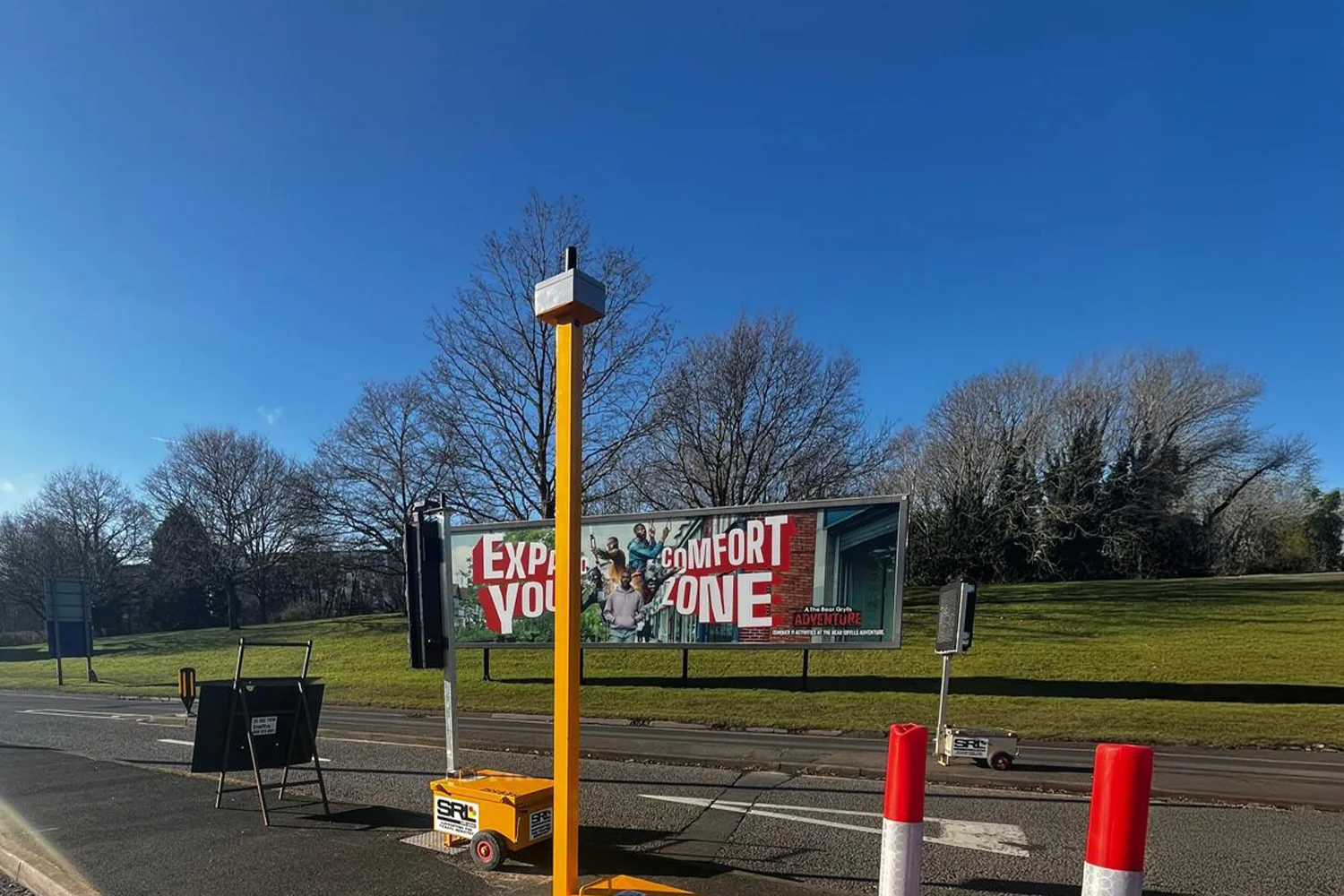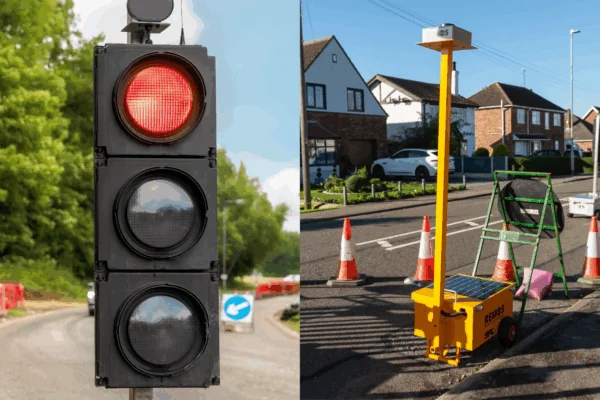Constant technological innovation is the defining feature of our sector. Rapid advances in technology are expanding the potential of our products to facilitate highways that are increasingly safe, efficient, and sustainable.
This capability of technology to promote improvement is particularly apparent in the mobile ITS sector, where a new generation of products, including portable and temporary traffic signals and variable message signs (VMS), are leading the way.
Challenges within the Highways Industry
National Highways, local councils and the traffic management contractors they employ face a series of enduring issues in the delivery of the UK’s transport system and roadworker safety remains of paramount importance.
Health and Safety Executive road safety statistics indicate that up to a third of all road traffic accidents involve someone who is at work¹. Meanwhile, according to the Stamp It Out campaign to end roadworker abuse, in 2023 a total of 2,307 road workers reported being either verbally or physically assaulted whilst working².
Improving environmental sustainability is of course crucial and will doubtless be high on the agenda of secretary of state for transport, Heidi Alexander, as she prepares to draw up the country’s new Integrated Transport Strategy.
Road user experience continues to concern National Highways and local councils. Independent watchdog Transport Focus’ 2023-4 Strategic Roads User Survey recently presented worrying statistics demonstrating a fall in journey satisfaction from 73% (2022-23) to 71%³.
Meanwhile, staff shortages continue to characterise the traffic management sector. In November, officials from Northern Ireland’s Department for Infrastructure reported that a lack of roadworkers is impeding the completion of road improvements across Belfast, with nearly a third of roles vacant.
Utilising Advanced Traffic Signals on Road Networks
The mobile ITS sector is working hard to develop new solutions designed to address the various issues in what is undoubtedly a hugely challenging scenario for all involved.
A new generation of traffic signals are helping to promote road worker safety by minimising the amount of time they need to spend working in live traffic environments. Batteries are offering increasingly competitive run times, reducing the frequency of exchange, while remotely operated solutions facilitate off-site operation, even when signals are located in remote rural areas.
By minimising the frequency of site visits required, the new solutions minimise too the carbon emissions associated with roadworker transport. Indeed, SRL estimates that the deployment of REMOS, one of the first scalable remotely operated signal solutions, can save contractors in the region of 3,564kg CO2 per operative per annum no longer required on site.
Some new signals are compatible with solar technology, harnessing renewable energy and limiting the carbon footprint of roadworks projects.
And some remote products allow one operative to manage several sites, monitoring traffic flows and efficiently making interventions to prevent and eliminate bottlenecks, allowing reliable operation even in the face of frequent staff shortages.
Utilising Variable Message Signs (VMS) on Road Networks
National Highways’ 2024 Electronic Boards for Roadworks Review was undertaken to promote improved VMS communication with road users on the Strategic Road Network to improve road user experience.
Based on research showing that messages that can be read in a maximum of four seconds are best for road users, the review formed the basis of SRL’s pioneering project for Kier’s A417 Missing Link scheme, where enhanced visibility signs featuring distinctive blue frames and white text against a black background were used as electronic billboards to present non-regulatory messages.
Producing Safer Highways
Yet for the industry to truly embrace the potential of these new solutions to create highways that are increasingly safe, sustainable and seamless, we need to take a more rigorous approach to quality standards to ensure that the traffic management products we use are of the highest possible quality.
TOPAS (Traffic Open Products and Specifications) provides local authorities and traffic management contractors with a straightforward system via which they may verify traffic control and associated equipment against a set of stringent quality criteria.
The specifications are intended to be used to aid purchasers and whilst not mandatory, the requirement for registration may be required by individual purchasing contracts. But while the majority of local authorities and traffic management companies stipulate TOPAS registration in the purchase of permanent ITS, many still fail to do so when hiring portable and temporary equipment, compromising the safety, sustainability and efficiency of our roads.
The industry must work together if we are to effectively harness the many opportunities presented to us by the rapid and ongoing technological evolution that defines the ITS sector, effectively embracing innovation in the quest for safer and more efficient highways. TOPAS product registration and procurement specification – in the hire as well as purchase markets – will help us to achieve this.
TOPAS Compliance
SRL has recently become one of the first manufacturers to achieve the new TOPAS 2540A registration, with the launch of its UltraLight portable traffic signal and REMOS signal solution last October. In future, all of its new traffic signals will be 2540A certified. We already have a fleet of the latest TOPAS 2516D registered variable message signs (VMS) and are focused on gaining additional certifications for further product categories in the very near future.
A seamless, safe and low carbon transport system is within our grasp, but it won’t happen by accident. Not only do ITS manufacturers need to continue to develop products focused on addressing these challenges, but our customers must ensure that quality standards sit front and centre of temporary as well as permanent procurement specification.
¹ Health and Safety Executive
https://www.hse.gov.uk/roadsafety/
² STAMP IT OUT
https://www.stampitout.uk/post/date-announced-for-respect-our-workforce-week-2025
³ Transport Focus
https://www.transportfocus.org.uk/publication/strategic-roads-user-survey-2023-24/




